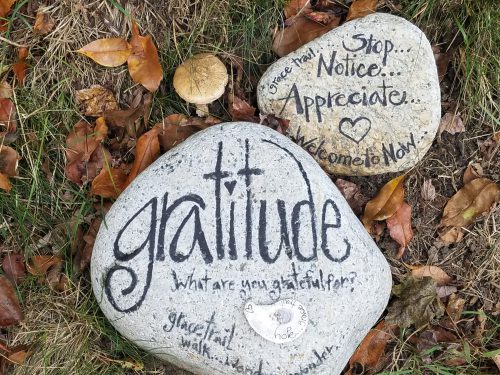
Somto hated Mathematics.
He struggled with it in class almost every year. Despite my many attempts to help him improve his understanding of the basics, we just couldn’t make a headway. I would scream and be so impatient whenever I sat down to teach him; my wife and I even went ahead to get home tutors for him.
Why did he struggle with a subject that I felt was piece of cake? Perhaps he was afraid to fail, or maybe my method of home teaching was outdated; maybe he had completely lost interest in math.
This was my biggest dilemma as a parent in 2014; I just didn’t understand why I couldn’t help my son who was constantly failing this subject term after term. I began to feel a sense of helplessness and visible frustration so much so that Somto preferred to ask his mum for assistance with his math homework rather than come to me. As you may imagine, this made me feel even more helpless. Mr. Farouk (Somto’s class teacher in Primary 6) said to me, “Sir, don’t worry, we will discover the areas of weakness in his math and fix it”.
I wondered, what could Mr. Farouk do in a few months, that I and other home tutors couldn’t achieve in 3 years?
A few weeks ago, I decided to go back to my son’s school to show some gratitude to one of the usually forgotten givers in society. Mr. Farouk made good his promise a few years ago. Today, Somto is the math tutor at home, assisting his brothers in their math assignments; he is also performing very well in math in school. Slowly, methodically; but surely, Mr. Farouk helped Somto restore his confidence and love for numbers. When I paid Mr. Farouk a visit in his classroom, his face lit with joy to know that Somto (whom he calls “my child”) is still doing very well. This simple act of gratitude required that I went back to Somto’s primary school and searched for Mr. Farouk.
This reminds me of the story of the ten lepers who were healed of Leprosy. Jesus asked the one who returned to show gratitude, “where are the nine?”. I dare say that the other nine lepers who didn’t return were perhaps thankful for the miracle, but that’s where it all ended. Gratitude does not only requires feeling thankful but going ahead to act on it. The lesson from the story of the ten lepers is about returning with something in our mouths or hands. How about making up your mind to return to say or do something refreshing to demonstrate gratitude. Yes, I mean decide now before reading any further, I’ll wait…
Welcome back and thank you for stopping for just a moment to be thoughtful. I can also feel the smile on your face because gratitude is infectious. There are some simple treasures of life, like cold water, bread and butter. So simple, but yet so profound in their importance to our daily lives. Some will argue that the best things in life are free (e.g. water & clean oxygenated air). We can and need to be thankful for things as simple as these. Living a life of gratitude requires thoughtfulness and stock taking.
Research has shown that gratitude has a soothing and sometimes healing effect on those with psychological challenges. Much of our time and energy is spent pursuing things we currently don’t have, and this is draining. Gratitude reverses our priorities to help us appreciate people more than the things we do. Gratitude unshackles us from toxic emotions; as cold water is to a thirsty soul, so is good news from a far country. Giving or receiving gratitude is as refreshing as a glass of cold water. Gratitude is a way for people to appreciate what they have instead of always reaching for something new in the hopes that it will make them happier.
Here are some ways to cultivate gratitude on a regular basis:
- Thank people. Think about someone who has done something nice for you, and mentally thank the individual. Verbalize your gratitude also in prayer.
- Keep a gratitude journal. You can make it a habit to write down or share with a loved one, thoughts about the gifts you’ve received. What a way to count your blessings.
- Share your gratitude. Social media platforms today help us to share our feelings of gratitude. Pick a time every month to sit down and write about your blessings. LinkedIn has some nice gratitude templates.
- Write a thank-you note. You can nurture your relationship with another person by writing a thank-you note. Be specific about the incident or occasion you are being thankful for. Keep it short and simple. Writing shows that it was not just a passing thought. Occasionally, feel free to also write one to yourself. Stick-ons can come in handy here.
The ethos of the story of the ten lepers in the Bible was not that they were a set of 9 ungrateful lepers, rather it was about the fact that the nine were not thoughtful enough to count their blessings. They were overtaken by the hustle and bustle of life and their unaccomplished dreams. They missed the opportunity for wholeness.
Gratitude helps you put things in their proper perspective. When things don’t go your way, remember that every difficulty carries within it the seeds of an equal or greater benefit. In the face of adversity ask yourself: “What can I learn from this?”, and “How can I benefit from this?”. Instead of always wishing for good things to happen to us we can choose gratitude, generosity, and goodwill. This is the secret to wholeness and fulfilment.
I hope this write-up will inspire you to create an attitude of gratitude.
Written by Chidi Iwe


This is a great call to action and a reminder to be better and appreciate what we have rather than being overwhelmed with what we are waiting for.
Thank you for this beautifully written piece.